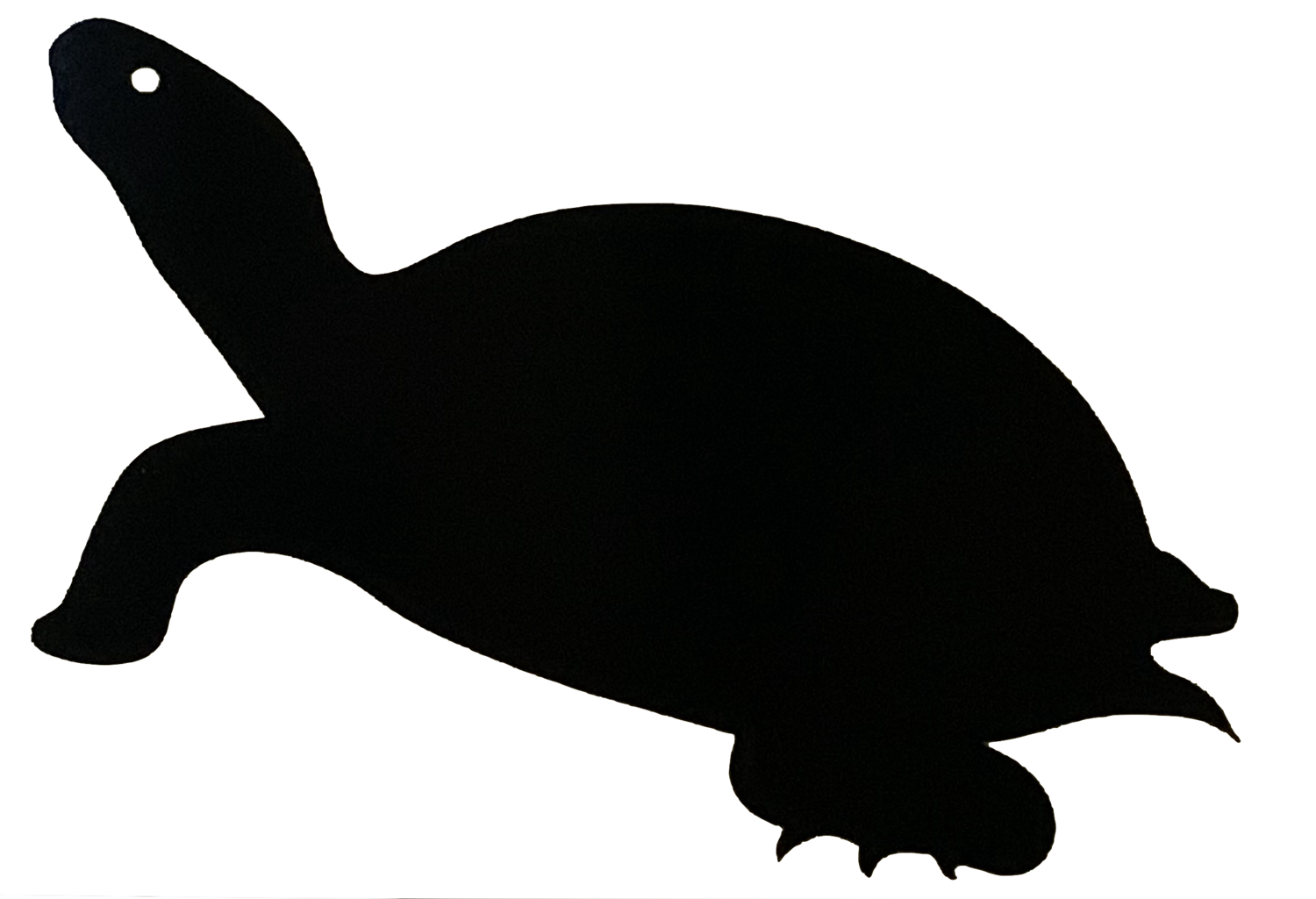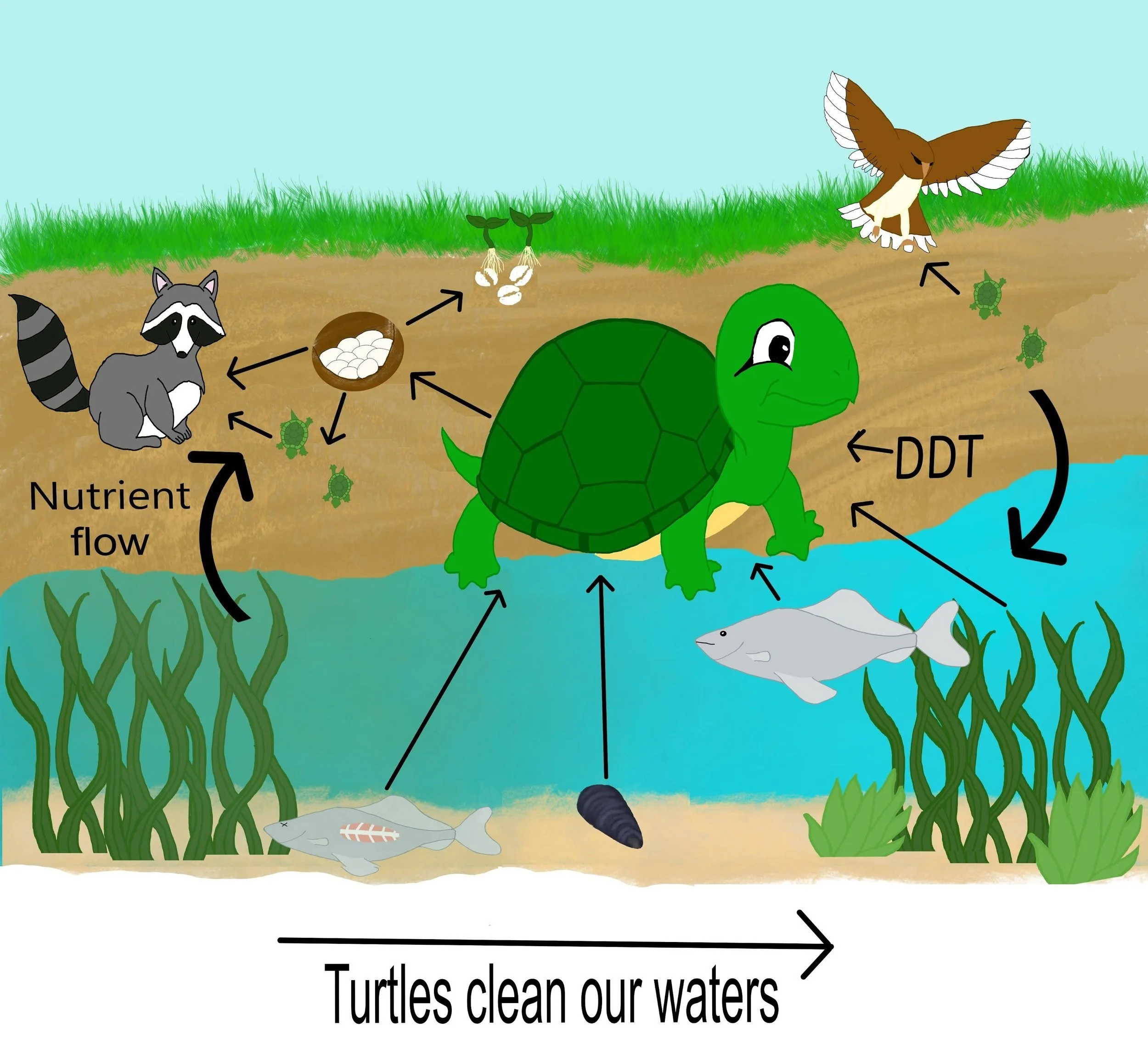Turtles Kingston Blog
2025 Turtles Kingston Annual Report
2025 marked our 8th year as a turtle conservation and education organization and now we are officially a registered not-for-profit! This was a big milestone for us and only one of many successes from the year! Take a look below to see the summary based our programs: education program, nesting program, trauma program, science program, advocacy program, as well as our finances.
Importance of Watershed Management
Ontario’s proposal to shrink our 36 conservation authorities down to 7 larger bodies may sound reasonable: fewer agencies, fewer applications, simpler development processes. But what’s not being said is why watershed-based, local management is so essential — especially for sensitive wildlife like turtles.
Keeping Turtles Safe when Fishing
An often-forgotten risk from humans to turtles is through fishing. In this blog post our guest blogger Kathy will discuss how to be mindful and aware of turtles so that your fishing experience can be both pleasant and turtle positive!
Why do turtles bask? It’s more than to just stay warm
Think about all the times you have seen turtles in their natural habitat. What are they doing? Most of you may have pictured the turtles laying within the surface of the water or sitting still on a log in the sun. It is not a coincidence that many turtles spend their days basking. In fact, basking plays a crucial role in a turtle's health and survival.
Why Turtles Matter
For various reasons, turtles are loved around the world. From an ecological lens, their significance stems from their impact on aquatic ecosystems as a keystone species. From a cultural perspective, turtles are known for their prominence in the creation stories of many Indigenous peoples as they symbolize wisdom, longevity, and connection to the spirit realm.
What is headstarting and why is it useful?
Headstarting is the process of incubating and then raising turtle hatchlings for some period of time before releasing them back into the wild. The thought behind headstarting has a little bit to do with the bigger the better but does it actually work or are we waisting our time and money?
Turtle Crossing Signs
When many of us think about the first thing to help reduce turtles getting injured on roads we think warning road signs like wildlife crossing signs. There are many versions of these signs out there and questions around how do you get one installed? Do they even work? In this month’s blog post we will be discussing turtle crossing road signs and trying to answer these questions.
Turtle Conservation: should we focus on adults or hatchlings?
Conservation of any animal has a lot of questions related to how, where, when, and even why. For turtles, we know some of the things we need to do include: protect their habitat, decrease the adult mortality, and increase hatchling recruitment, but which of these actions will make the biggest impact?
Road curbs as barriers to turtle movement
Roads pose a major threat to turtles, they fragment turtle habitat and are a main cause of turtle mortality and injury. Typically moving across a road, although dangerous, is not too difficult. However, in more urban areas where roads frequently have curbs, these can result in another barrier to turtle movement.
Alternative turtle nesting sites
Where a mother turtle decides to lay her nest is an important factor impacting the success and survival of her hatchlings. We know that our local Ontario turtles prefer sandy substrate with minimal vegetation and direct sunlight, thus, when providing alternative nesting mounds we must try to recreate this nesting habitat.
How is Climate Change Impacting Turtles
Climate change is an issue that will shape the future of our planet and all of its inhabitants. Long term shifts in weather patterns and temperatures will have a dramatic effect, especially on those species like turtles who are heavily influenced by environmental conditions.
Why Turtles are Important
Turtles have long been viewed as having significance to our planet and country and here are some reasons why you should still care about them today.
Overwintering Snapping Turtle Hatchlings
We’ve recently learned that our map turtles and painted turtles aren’t the only turtles that might overwinter in their nest after hatching. Snapping turtles have also been documented to overwinter in the nest in southwestern Ontario.
2024 Turtles Kingston Annual Report
2024 was another great year! Let’s explore all the awesome turtle education and conservation efforts we did.
Turtle-friendly Road Work
Road maintenance and construction are an essential part of our modern-day lives, but the impact of these activities on the environment can be dramatic! The effects of these activities on the ecosystem, particularly on turtle populations and wetland areas, are concerning and require our attention!
What would happen if turtles went extinct?
Turtles are an essential part of our ecosystems and play a vital role in maintaining the balance and health of our environment. They are present in almost every freshwater habitat, including rivers, lakes, ponds, and wetlands. Their impact is far-reaching. So, what would happen if they disappeared?
2023 Turtles Kingston Annual Report
2023 is coming to a close and before it does we wanted to look back on Turtles Kingston’s accomplishments over the 2023 turtle season. In this blog post you will find a detailed summary of what we accomplished in all our programs: education program, nesting program, trauma program, science program, advocacy program, and more.
The Importance of Wetlands
Wetlands are where terrestrial and aquatic habitats intersect, as a result of this they possess a unique mixture of species, conditions and interactions. This makes wetlands among the most dynamic, biodiverse and productive ecosystems on the planet!
Poached eggs? No thanks!
Most people are familiar with wildlife poaching, but it is often thought of as something that happens in far away places, to exotic wildlife only. Did you know that it happens right here in Ontario?
Grace and Fidelity
Read about Grace, the 125 year old Snapping Turtle that lost her winter brumation site to reckless human development.




















